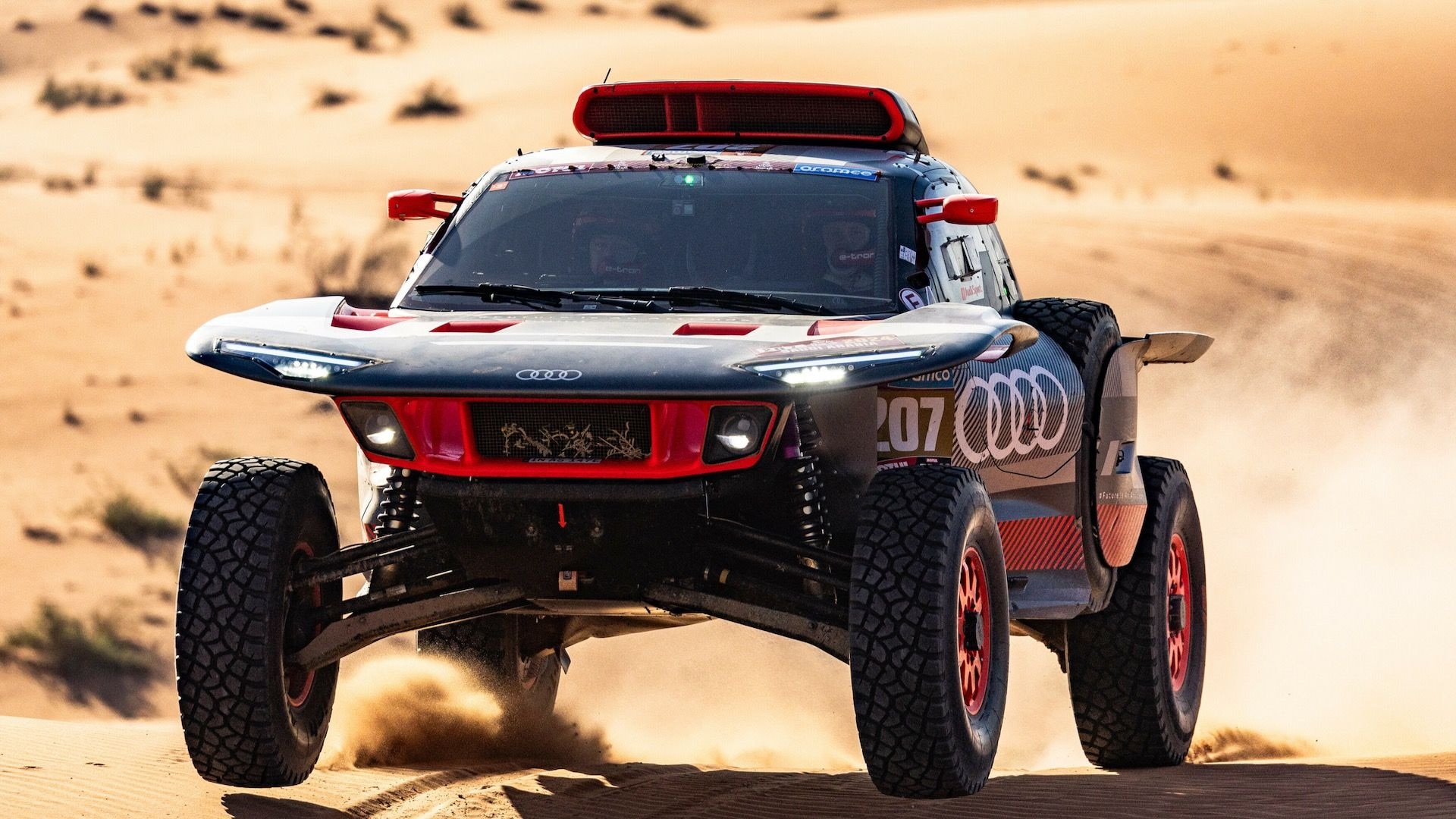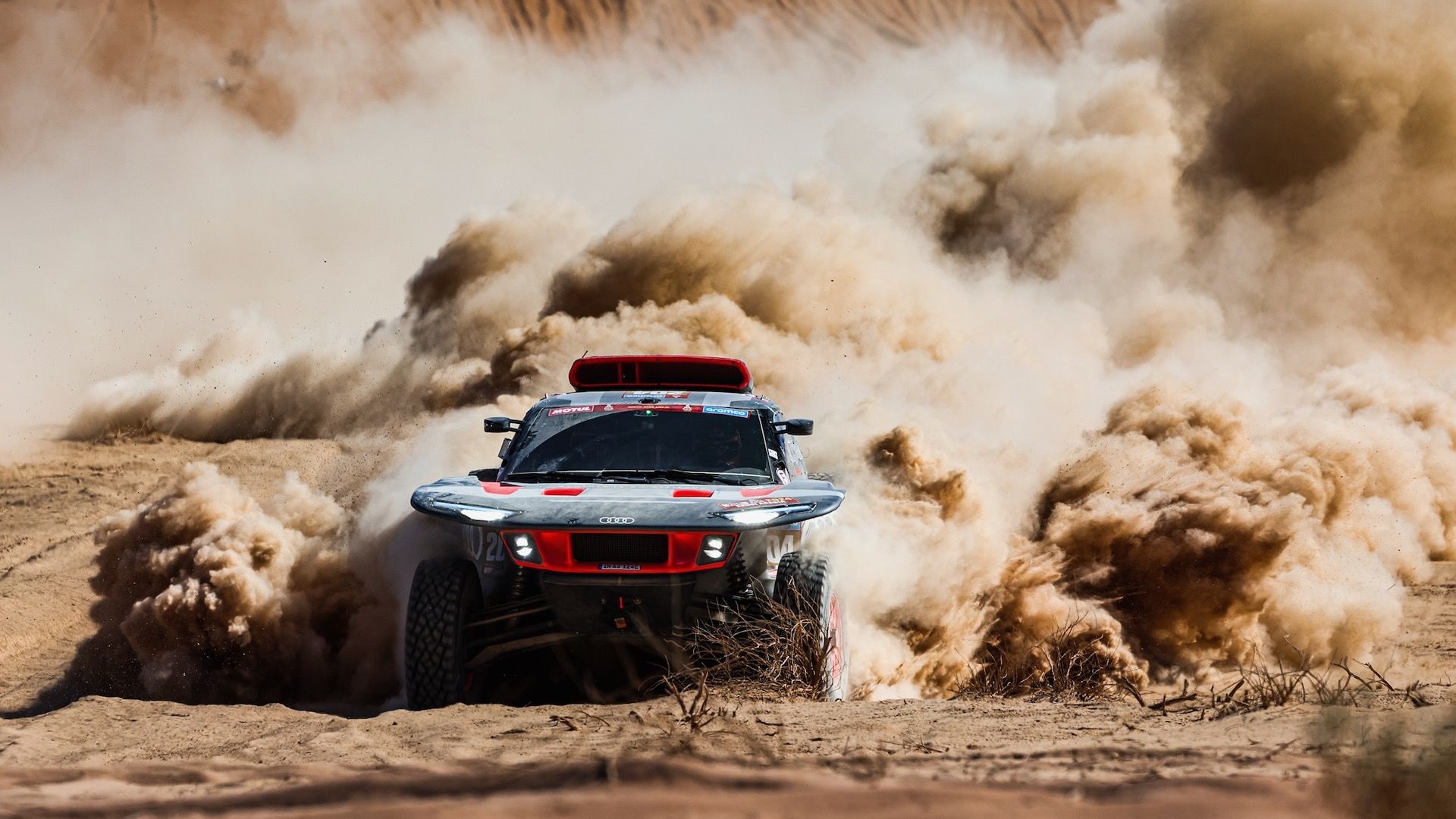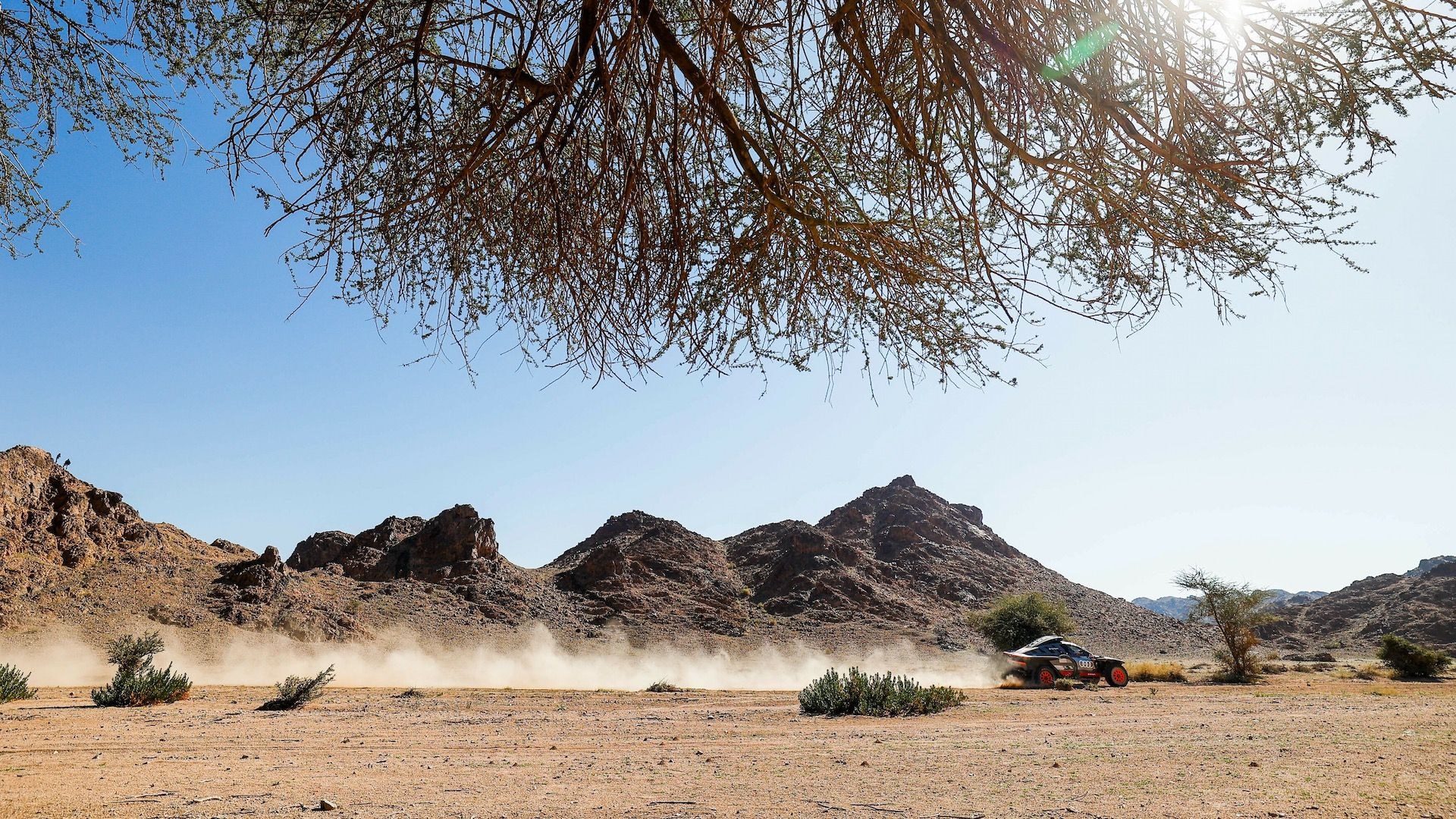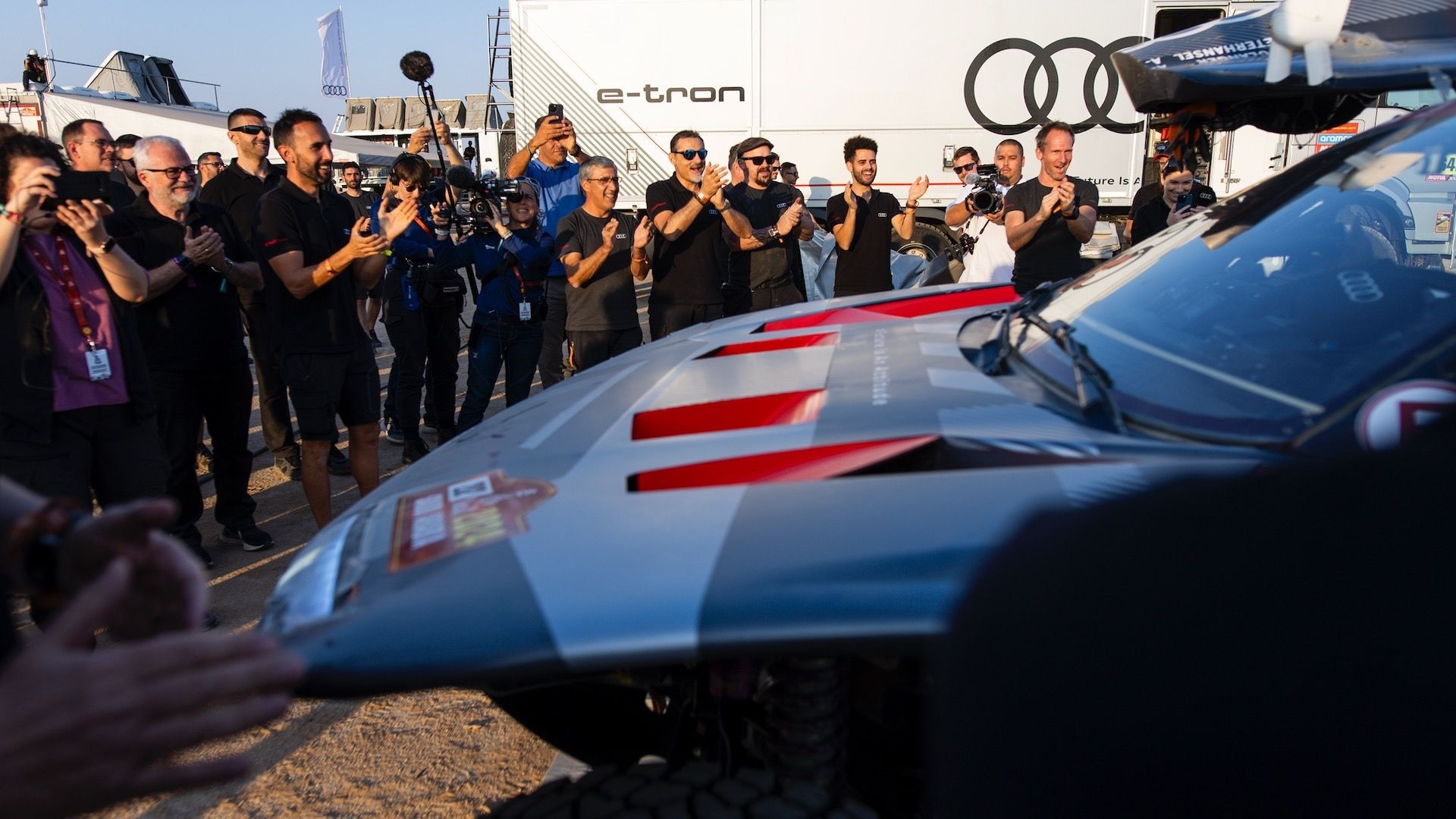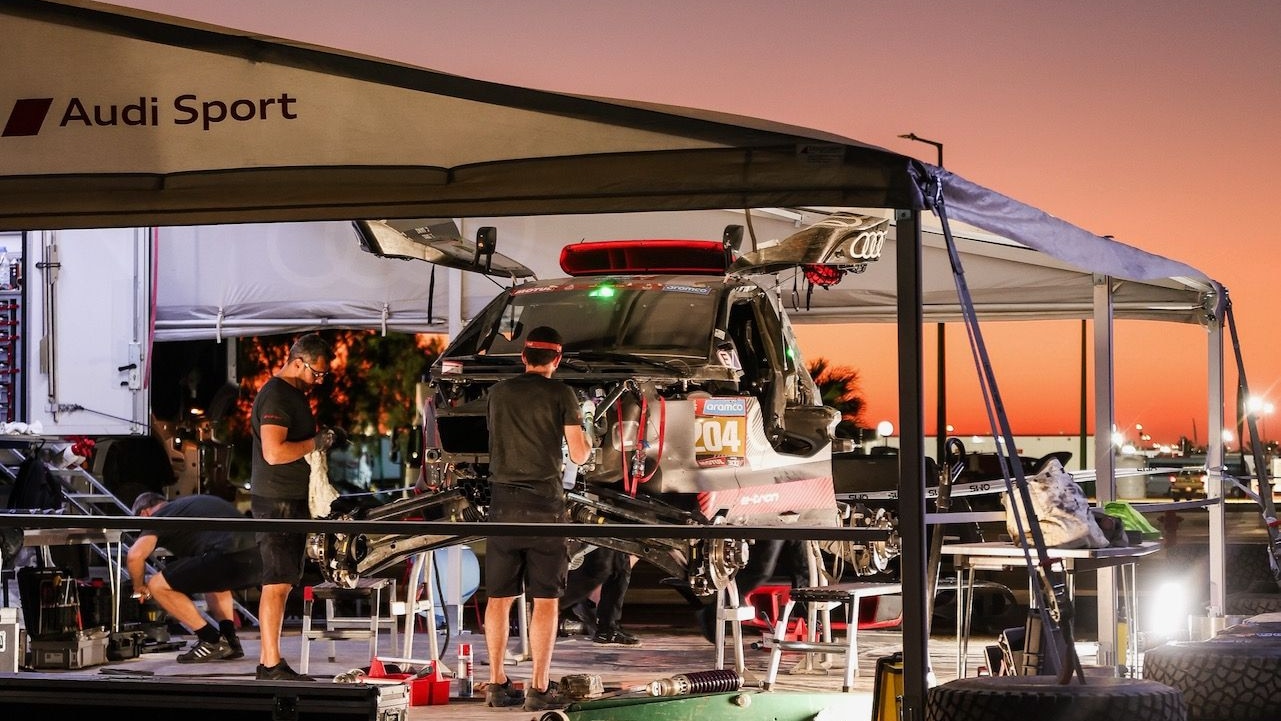Audi has won the grueling Dakar Rally with its bespoke RS Q E-Tron on its third attempt.
The Spanish driving duo of Carlos Sainz Sr. and Lucas Cruz secured Audi's first-ever Dakar victory with a 1-hour, 20-minute lead at the end of the race's 4,898 miles across Saudi Arabia.
It's the fourth Dakar win for the pair, following victories in 2010, 2018, and 2020. The 61-year-old Sainz Sr., father of Ferrari Formula 1 driver Carlos Sainz Jr., also has two World Rally Championships under his belt.
Sainz Sr. and Cruz had dominating pace throughout the rally, leading uninterrupted in the latter six of the race's 12 stages. But on the Dakar Rally, tough terrain and navigational challenges can be as much of a threat as the competition.
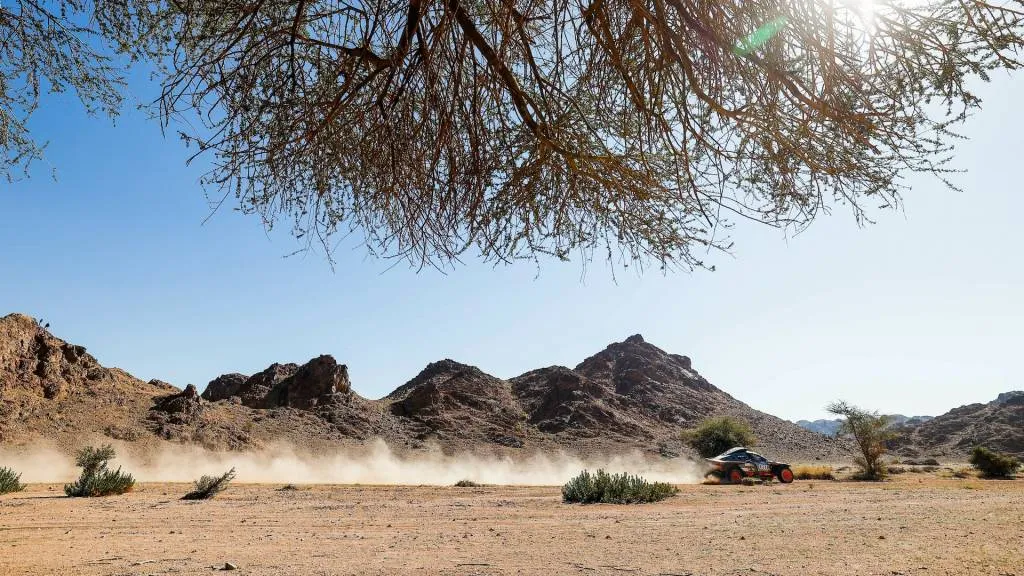
Audi wins the 2024 Dakar Rally
Audi was in contention for a one-two win, with a second RS Q E-Tron driven by Swedes Mattias Ekström and Emil Bergkvist running second after six stages. However, a rear-axle issue on the seventh stage took the Swedes out of contention. They managed to finish, but well outside the top 10.
The RS Q E-Tron is a series plug-in hybrid, with gas engine used as a generator to charge a battery pack that in turn runs an electric all-wheel-drive powertrain delivering a peak output of 383 hp. The gas engine also runs on synthetic fuel, which Audi claims reduces carbon dioxide emissions by 60% compared to conventional fuels.
Audi first entered the RS Q E-Tron in the 2022 Dakar Rally, managing some stage wins and single-day podium results. The automaker returned for 2023 with an updated version, but that effort was marred by crashes. Further updates were made for the third attempt at the Dakar this year, aimed at reducing weight, shortening maintenance times, and improving safety, comfort, and reliability.
The Dakar Rally gets its name from its original route from Paris, France, to Dakar, Senegal. Organizers moved the race to South America in 2009 due to fears of competitor safety, and then to Saudi Arabia in 2020.
